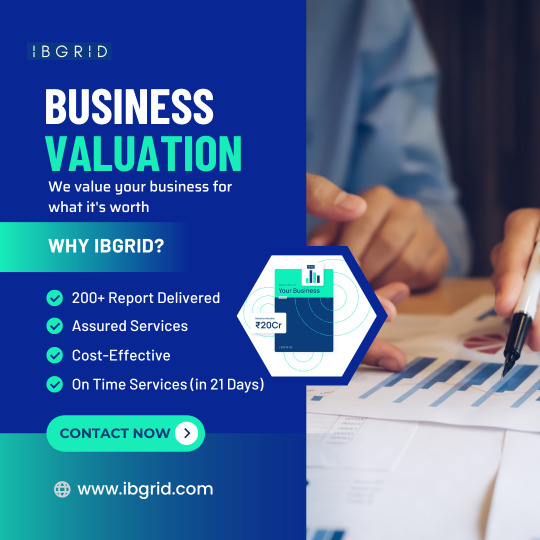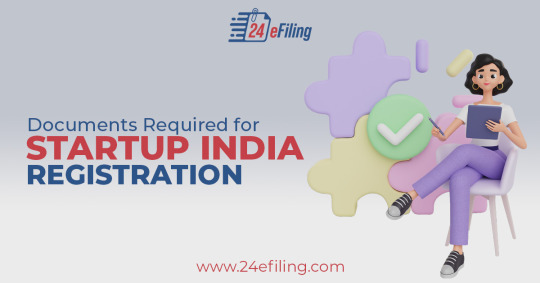#Startup Valuation
Text
The Valuation Slide That Wins Investors
The Valuation Slide That Wins Investors
In the glitzy world of startups, where innovation meets ambition, there’s one slide in a pitch deck that can command the attention of everyone in the room – the valuation slide. Whether you’re an early-stage startup or merely gauging the potential of a business idea, presenting the perfect valuation can set the stage for a successful fundraising effort. But how do you nail this slide, especially if you have no revenue yet? Let’s delve deeper.
Why Valuation Matters
The valuation of a startup isn’t just about numbers or potential revenue. It’s a narrative of the company’s potential, vision, and the value it aims to deliver to stakeholders. For investors, valuation serves as a compass – it guides them to ascertain the risk associated with your startup and the potential return on their investment. While revenue is a straightforward measure for established companies, startups often operate in the realm of vision, potential, and innovation. This makes the valuation slide not only about the worth but also about the story behind that worth.
Crafting the Perfect Valuation Slide
1. Simplicity is Key: Don’t overwhelm your audience with complex calculations or jargon. Present a clear, concise valuation figure and back it up with 3-4 key metrics or reasons that support it.
2. Storytelling: Numbers, on their own, can be lifeless. Weave a compelling story around your valuation. How did you arrive at this figure? What milestones or potential growth does this number represent?
3. Visual Appeal: A picture is worth a thousand words. Use charts, graphs, or infographics to represent data. It aids in comprehension and retention.
4. Be Prepared for Questions: The valuation slide will undoubtedly raise eyebrows and questions. Be ready to defend your valuation with data, research, and comparables from the industry.
The Role of Valuation Tools
Not everyone is a financial wizard, and that’s okay. In today’s tech-driven age, tools like ValuationGenius can give you an edge. These platforms provide an approximate valuation based on a range of factors, eliminating the need for deep financial know-how. While this shouldn’t be the sole basis of your valuation, it can serve as a starting point or a validation tool. When combined with market research and industry benchmarks, tools like these can make your valuation slide more credible and robust.

Case Study: Litemeup and the Power of AI in Valuation
Meet Litemeup, a fledgling startup on the brink of transforming the packaging industry with AI-driven design. While they had a groundbreaking concept, they faced a common challenge many early-stage startups grapple with: how to place a valuation on an idea when there’s no product or revenue in play?
Enter ValuationGenius
Without a product, without revenue, and seemingly without the necessary data points that typically inform valuation, Litemeup turned to our tool. ValuationGenius didn’t just spit out a random number. Instead, it provided a range of estimates based on different valuation methods. But what truly stood out was the grounding of these estimates. Each was justified not just by data, but by the wisdom of business development and an inherent understanding of the startup landscape.
So, when Litemeup pitched to investors, they had more than just a vision. They presented a detailed valuation slide that wasn’t built on optimistic projections or vague assumptions but on a solid foundation provided by ValuationGenius. The result? They secured the trust and, subsequently, the investment from stakeholders, proving that even in a world where numbers often dominate, there’s always room for common sense and astute business acumen.
Conclusion
While a startup’s journey is riddled with challenges, presenting the right valuation shouldn’t be one of them. Remember, your valuation is more than just a number. It’s a representation of your startup’s vision, potential, and promise. Craft it with care, back it up with data, and present it with confidence.
Value startup with no revenue
#startup valuation#startup#business valuation#online startup valuation calculator#startup valuation calculator#startup valuation tool#valuation calculator startup#online valuation platform
2 notes
·
View notes
Text
Startup Funding in India: Demystifying Income Tax Valuation
Raising funds? Understanding income tax valuation is key!
For Indian startups, securing funding often involves issuing shares. But this comes with a crucial step: income tax valuation. This process determines the fair market value of your company's shares for tax purposes. A clear understanding of income tax valuation helps startups navigate fundraising smoothly.
When is Income Tax Valuation Needed?
Issuing Shares at a Premium: If you issue shares (equity, preference, or CCDs) above face value, a valuation report is mandatory. This helps determine capital gains tax for both you and your investors.
Discounted Cash Flow (DCF) Method: Even for shares issued at face value, a report might be required if you use the DCF method internally for valuation. DCF projects future cash flows and discounts them to present value, justifying the arrived-at valuation.
Who Can Perform Income Tax Valuation?
Only SEBI-registered merchant bankers are authorized to prepare these reports in India. Their expertise helps analyze your startup's financial health, growth potential, and market conditions to arrive at a fair market value.
People Also Read: Valuation under FEMA (Foreign Exchange Transactions)
What Factors Influence Valuation?
Financial Performance: Your historical financial statements (past few years) are analyzed.
Growth Projections: Five-year financial projections for revenue, expenses, and profitability are crucial.
Market Analysis: Overall market performance for your industry and valuations of similar companies are considered.
Investment Details: Information on previous funding rounds and valuations used is factored in.
Risks and Uncertainties: Any significant business or industry risks are considered in the valuation.
Cost and Time Considerations:
Merchant banker valuation reports typically start from Rs. 65,000, with costs varying based on complexity.
Turnaround time can be around 8 business days.
Understanding Share Valuation:
Imagine a company as a whole pizza, and each share as a slice. Share valuation determines the worth of an individual slice. Financial analysts use various methods to estimate a share's value based on factors like future earnings potential, assets, and similar company valuations.
Who Can Value Shares?
The Companies Act specifies qualified professionals:
Practicing Company Secretaries (IBBI registered)
Chartered Accountants (IBBI registered)
Cost Accountants (IBBI registered)
Why is Share Valuation Important?
Share valuation ensures a healthy business environment by considering market forces, regulations, and economic factors. It also helps maintain accurate records of share value, crucial for businesses and the economy.
Investor Tips:
Do your own research.
Consider your financial goals and risk tolerance.
Be cautious of media recommendations for "best value stocks."
Refer to Section 56 and Rule 11 UA of the Companies Act for guidance.
Tax Implications:
Issuing Shares at a Premium (Section 56(2)(viib))
Excess amount over face value may be taxable.
Two options to determine Fair Market Value (FMV) for tax purposes:
Valuation as per Rule 11UA(2) of Income Tax Rules (typically by a merchant banker)
Valuation substantiated to the satisfaction of the Assessing Officer
Higher of the two FMV figures is used for tax calculations.
Receiving Shares at a Discount (Section 56(2)(x))
If a resident receives shares for less than FMV by more than Rs. 50,000, the difference is considered income.
Alternatives to Income Tax Valuation Reports:
In some cases, depending on the situation, alternatives may exist:
Valuation by a Registered Valuer: A report from an IBBI-accredited registered valuer might suffice.
Valuation by a Chartered Accountant (for Book Value): For existing shareholders or Net Asset Value (NAV) issuances, a Chartered Accountant's report based on book value might be acceptable.
Always consult with a tax advisor to determine the exact requirement for income tax valuation based on your specific situation.
People Also Read: Guide to Startup Valuation in India
Benefits of Income Tax Valuation:
Clarity for Investors: A clear valuation report provides transparency regarding the fair market value of your shares.
Reduced Tax Liability: A well-defined valuation report can help optimize tax liabilities for both you and your investors.
Strategic Decision Making: The valuation process itself can be an insightful exercise, prompting analysis of your business model, future prospects, and market positioning.
Conclusion:
Income tax valuation is a crucial step in securing funding for Indian startups. By understanding the requirements, methodology, and benefits, you can make informed decisions and present a strong case to potential investors. A reputable merchant banker can guide you through the process and provide an accurate valuation report that reflects your company's
0 notes
Text
zefyron
Investor and Startup Database Made Easy with Global databse tool
Browse through the best database for startups and Investors available on this platform. Get access to the in-depth information with precise results and advanced filters
Global Startup Database
#enterpreneur#investors#startup#stock market#venture capitalist#startup funding#startup success#startup business#startup valuation#startup company#entrepreneur
0 notes
Text
A Deep Dive into the Valuation of Blockchain Companies

Valuation of Blockchain Companies - Introduction
In recent years, blockchain technology has emerged as a disruptive force across various industries, revolutionizing the way business transactions are conducted. From finance and supply chain management to healthcare and real estate, blockchain offers a decentralized, secure, and transparent platform for recording and verifying transactions. As this technology gains momentum, the valuation of blockchain companies becomes a critical aspect of assessing their potential and attracting investment. In this blog post, we will delve into the intricacies of blockchain company valuation and explore the key factors to consider in this evolving landscape.
Understanding Blockchain Technology
Before we dive into the process of blockchain valuations, let’s briefly recap what blockchain technology entails. According to IBM, blockchain is a shared, immutable ledger that facilitates the process of recording transactions and tracking assets in a business network. These assets could be of either tangible or intangible nature. Each transaction, or block, is linked to the previous one, creating a chain of information that is virtually impossible to alter or tamper with. This transparency and immutability make blockchain an attractive solution for enhancing trust, security, and efficiency in various sectors.
The structure of a blockchain is designed to ensure the security of data through its consensus mechanism which has a network of nodes that agree on the validity of transactions before adding them to the blockchain.
Revolutionizing Industries with Blockchain Technology
Blockchain is an emerging technology with many advantages in an increasingly digital world:
Highly Secure – It uses a digital signature feature to conduct fraud-free transactions making it impossible to corrupt or change the data of an individual by other users without a specific digital signature.
Decentralized System – Conventionally, we needed the approval of regulatory authorities like the government or bank for transactions; however, with blockchain, transactions are done with the mutual consensus of users resulting in smoother, safer, and faster transactions.
Automation Capability – It is programmable and can generate systematic actions, events, and payments automatically when the criteria of the trigger are met.
Factors Influencing Valuation of Blockchain Companies
The advent of blockchain technology has ignited a revolution across industries, reshaping the way businesses operate and transforming traditional financial systems. As more and more companies embrace this transformative technology, understanding blockchain valuation methodologies becomes imperative.
Evaluating the Technology Infrastructure – One of the fundamental aspects of valuing blockchain companies is assessing the strength of their technology infrastructure. Blockchain-based firms rely on robust networks and protocols to ensure data integrity and security. The evaluation process includes scrutinizing the scalability, consensus mechanism, and privacy features of the underlying blockchain.
User Adoption and Network Effect – One of the primary drivers in the valuation of blockchain companies is the level of user adoption and the network effect they achieve. Companies with a large and engaged user base are more likely to attract investor interest and generate value. The network effect, where the value of a product or service increases as more people use it, plays a crucial role in assessing the growth potential and long-term viability of a blockchain company.
Technology and Innovation – The underlying technology and innovation implemented by a blockchain company significantly impacts its valuation. Factors such as the scalability, speed, security, and interoperability of the blockchain solution influence its market competitiveness and potential for widespread adoption. Companies that leverage cutting-edge technology and continuously innovate to solve real-world problems are often valued highly.
Token Economics and Utility – For blockchain-based companies that issue tokens or cryptocurrencies, analyzing their token economics is essential. A clear understanding of how tokens add value to the network and the company’s revenue generation is crucial. Necessarily, it is important to access the token’s demand and supply dynamics, its role in governance, staking, or rewards mechanisms, and how it aligns with the overall business model.
Partnerships and Ecosystem – The partnerships and ecosystem surrounding a blockchain company can also contribute to its valuation. Collaborations with established industry players, strategic alliances, and integration with complementary technologies can enhance a company’s credibility and expand its market reach.
Intellectual Property and Partnerships – Blockchain companies often develop novel solutions, protocols, and algorithms. Securing intellectual property rights can bolster their position in the market and enhance their valuation. Patents, trademarks, and copyrights play a crucial role in establishing barriers to entry and protecting the company’s competitive advantage. Further, Collaborations with industry leaders or government entities demonstrate credibility, access to resources, and potential market expansion.
Regulatory Environment – The regulatory landscape surrounding blockchain technology varies across different jurisdictions. Companies operating in favorable regulatory environments or those that navigate regulatory challenges effectively are seen as less risky and may command higher valuations.
Valuation Methods for Blockchain Companies
Blockchain valuations can be challenging due to the unique nature of the technology and its evolving ecosystem. Traditional valuation methods like discounted cash flows (DCF) and comparable analysis may not capture the full potential and intricacies of blockchain-based businesses. Instead, alternative methods such as network valuation, token-based valuation, and ecosystem analysis have gained prominence.
A) Network Effects Valuation – This method focuses on assessing the value of a blockchain company based on its network of users and the network effect it has achieved. Metrics like user growth, activity levels, and engagement are considered to estimate the value generated by the network.
Metcalfe’s Law is a theory developed by Robert Metcalfe, the co-founder of Ethernet and an early pioneer in computer networking. The law states that the value of a telecommunications network is proportional to the square of the number of connected users in the network. In simpler terms, the more people or devices connected to a network, the more valuable that network becomes.
Mathematically, Metcalfe’s Law can be expressed as: V = n^2
Where: V represents the value of the network
n represents the number of connected users or nodes in the network
Metcalfe’s Law is based on the idea that the value of a network increases exponentially as more participants join because each new user adds additional connections and potential interactions with other users. These connections and interactions create a network effect, where the value of the network grows as it becomes more widely adopted.
Metcalfe’s Law has been applied to various network-based systems, including telecommunications networks, social networks, and, in the context of blockchain, to assess the value of a decentralized network. The law suggests that the value of a blockchain network increases as more participants join, enabling more transactions, interactions, and applications within the network.
It’s important to note that while Metcalfe’s Law provides a theoretical framework for understanding the value of networks, it does not account for all factors that influence the success and value of a network. Real-world factors such as network quality, user engagement, competitive landscape, and other network-specific characteristics also play a significant role in determining the network’s actual value. Therefore, Metcalfe’s Law should be considered alongside other factors when evaluating the value and potential of a network.
B) Token-Based Valuation – Token-based valuation involves analyzing the fundamental factors driving the value of a company’s tokens or cryptocurrencies. Factors such as token supply and demand, token utility, token velocity, and market sentiment play a significant role in determining the value of a blockchain company.
By considering these factors, the token-based valuation method aims to provide insights into the potential value of a blockchain token. However, it’s essential to note that token valuation is a complex and dynamic process, subject to various market forces and investor sentiment.
C) Fee Generation Method – The fee generation valuation method of blockchain determines the network’s value based on the fees generated by its operations. In blockchain systems, participants pay fees to incentivize validators and cover transaction processing costs.
This method considers transaction volume, frequency, and competitiveness of the fee market. Higher volumes and competitiveness indicate network usage and demand. The valuation also accounts for overall utility and adoption. A widely adopted blockchain with diverse use cases generates more fees. Investors use the fee generation potential to assess a blockchain’s value, estimating its revenue capacity and growth prospects.
D) Ecosystem Analysis – Evaluating the strength and potential of a blockchain company’s ecosystem is another approach to valuation. This includes assessing partnerships, developer community involvement, market demand for the solution, and the company’s position within the broader blockchain ecosystem.Read Full Blog Here :- https://valadvisor.com/a-deep-dive-into-the-valuation-of-blockchain-companies/
0 notes
Text

Free Webinar on Understanding Startup Valuation for Founders
The Webinar is being organized by IID Startup Ecosystem Brings to You an Indepth Webinar on Startup Valuation for Founders/Aspiring Founders to Equip Yourself better before Raising Investment.
KEY POINTS OF DISCUSSION
Understanding Start-up Valuation
Factors that Influence Start-up Valuation
Various Valuation Methodologies and Approach
Choosing the Right Valuation Method
Other key Terminologies in Valuation
#businessowner#entrepreneurlife#startup valuation#startup#startup investment proposal template#fundraising#venture capital
0 notes
Text

Best Company Valuation Services - IBGrid
Are you looking for company valuation services in India? Get a complete business valuation report within 21 days at IBGrid Connect with an expert team now.
We delivered 250+ valuation reports to SMEs to large scale businesses from 10 Cr to 500 Cr.
Reach out to our 25+ years of experienced team at [email protected]
Click here: https://www.ibgrid.com/business-valuation-services
#company valuation#valuation report#fundraising#mergers and acquisitions#business valuation#company valuation services#startup valuation
0 notes
Text
The Role of Startup Valuation Experts
Unlocking the true value of a startup requires the keen eye of seasoned Startup Valuation Experts. These professionals possess a unique blend of financial acumen and industry insight, essential for navigating the dynamic landscape of burgeoning businesses.
In the realm of startups, where potential often outweighs current assets, accurate valuation is both an art and a science. This is where Startup Valuation Experts shine. They delve deep into the core of a company, analyzing its growth trajectory, market potential, and competitive positioning.
One key aspect these experts consider is the startup's revenue model. Is it a subscription-based service, reliant on a steady stream of users? Or perhaps it thrives on one-time product sales, aiming for a larger market share? Understanding these nuances is crucial for determining a startup's revenue-generating capacity.
Moreover, Startup Valuation Experts are adept at scrutinizing a startup's team. Who are the visionaries behind the venture? What experience and skills do they bring to the table? Investors want assurance that the leadership team can weather storms and steer the company towards success.
Market analysis forms another cornerstone of their evaluation. These experts dive into market trends, potential disruptions, and the competitive landscape. This comprehensive view helps in assessing if the startup can carve a niche or disrupt the status quo.
In the world of startups, where innovation is constant, traditional valuation methods often fall short. Startup Valuation Experts understand this challenge. They employ dynamic approaches, such as the Berkus Method or the Scorecard Valuation Method, tailored to the unique traits of startups.
In essence, Startup Valuation Experts are the guiding compass for both investors seeking the next big opportunity and founders aiming to unleash the full potential of their vision. Their expertise cuts through the noise of uncertainty, revealing the true value that lies within the heart of a startup poised for greatness.
0 notes
Text
7 Documents required for Startup India Registration

Startup India was launched in 2016, the Indian government initiated this plan to support entrepreneurs in their businesses. Startup India not only encourages innovation and entrepreneurship but also, provides benefits like funding, tax breaks, and relaxed government for those who register. This article will give a clear idea about the main documents required for Startup India Registration.
The major documents required for Startup India Registration are: Incorporation or the Registration Certificate of the startup, Proof of funding of the startup (if any, Authorization letter of the authorized representative of the particular startup company, Limited Liability Partnership or partnership firm, Proof of concept like website link or video Patent and trademark details, if any, List of awards or certificates of recognition of the startup (if any), PAN Number of the startup.
"View More Information About Documents Required for Startup India Registration
0 notes
Text
youtube
The Hidden Truth Behind Startup Valuation: A Founder's Ultimate Guide
In this YouTube video, "The Hidden Truth Behind Startup Valuation: A Founder's Ultimate Guide," viewers are provided with valuable insights into the intricacies of startup valuation. The video likely delves into the factors that influence startup valuation, such as market potential, revenue projections, team expertise, competitive landscape, and intellectual property. It may also discuss different valuation methods and approaches commonly used by investors and founders. By watching this video, founders can gain a deeper understanding of startup valuation and learn essential tips and strategies to accurately assess and communicate the value of their ventures to potential investors.
visit my website : https://www.vk-rise-investments.com/
#startup valuation#startup funding#startup business#vc#venture capital#seed funding#private equity#angel investing#seed capital#Youtube
1 note
·
View note
Text
The Dynamics & Methodologies of Startup Valuation
In entrepreneurship and investment, a critical puzzle piece often perplexes founders and investors: startup valuation. It's a pivotal aspect that determines the worth of a company in its early stages, yet the methods used to determine this value are as diverse as the startups themselves. Valuing a startup involves a blend of financial analysis, market dynamics, potential growth, and investor sentiment. To explore its essence, significance, and diverse methods, let's dive deeper into this complex yet critical domain.
0 notes
Text
Get a Professional Valuation Report for Your Early Stage Startup, No Expertise Required
You’ve poured endless energy into getting your early stage startup off the ground. Between refining your minimal viable product, pitching to investors, and signing up first customers, valuation often takes a backseat.
But determining an accurate valuation is crucial both for raising funds and dividing equity among co-founders. Professional valuation reports typically cost thousands of dollars — not ideal for bootstrapped founders.

Company Summary:
Key details like business type, stage of development, number of employees and founders. Helps investors quickly understand your startup.
Valuation Range:
A valuation estimate combining multiple methodologies like VC method, DCF models etc. Includes an interactive graph showing valuation bands. (Our startup valuation methods)
Financial Projections:
Revenue, cost and cash flow forecasts for the next 5 years under both optimistic and conservative scenarios.
Valuation Analysis:
Plain English breakdown of how different valuation methodologies work and the key assumptions made.
Appendix:
Transparent weights showing the prominence given to different methodologies based on startup stage.
Startup Valuation
The end result is a beautifully designed, easy-to-understand report you can share with potential investors. Our tool handles all the number crunching and modeling automatically based on your inputs. And there’s no expertise required — you don’t need to be a finance whiz to describe your business model.
Early Stage Startup valuation online
Whether you’re raising a seed round or negotiating co-founder equity splits, our startup valuation report brings clarity to this highly complex process through simple questionnaires and insightful data visualizations.
The Pre Revenue Valuation Calculator
Sign up in minutes and get your report delivered in <5 minutes! We can’t wait to analyze your exciting venture.
Download Sample Valuation Report
#Valuation Analysis#startup valuation#startup valuation tool#online startup valuation calculator#valuation calculator startup#startup valuation platform#early-stage startups with no revenue#startup valuation calculator#valuating early-stage companies#Pre Revenue Valuation Calculator#Download Sample Valuation Report
0 notes
Text
Demystifying Valuations in Insolvency: A Guide to IBC Valuation
The Insolvency and Bankruptcy Code (IBC), 2016, introduced a much-needed framework for dealing with corporate distress in India. A crucial element of this process is determining the fair value of a debtor company's assets. This is where valuations under IBC come into play.
Why is Valuation Important in IBC Proceedings?
Imagine a company struggling financially. The IBC process aims to either revive the company or recover the maximum value for creditors through liquidation. Valuations play a pivotal role in both scenarios:
Restructuring Decisions: A fair and accurate valuation of the company's assets helps assess its viability for revival and determine the feasibility of a restructuring plan.
Liquidation Process: When liquidation becomes necessary, valuations help creditors understand the potential recovery they can expect from selling the company's assets.
Transparency and Fairness: Reliable valuations ensure transparency and fairness throughout the IBC process, protecting the interests of all stakeholders, including creditors, shareholders, and the company itself.
People Also Read: Financial Reporting Valuation for Businesses
What Assets Get Valued Under IBC?
The IBC mandates valuations for various assets owned by the corporate debtor:
Tangible Assets: Land, buildings, plant & machinery, inventory, and other physical assets.
Intangible Assets: Intellectual property like patents, trademarks, and copyrights.
Financial Assets: Investments in other companies, shares, and bonds.
Who Conducts Valuations in IBC Proceedings?
Only specially qualified professionals called Registered Valuers (RVs) can perform valuations under the IBC. The Insolvency and Bankruptcy Board of India (IBBI) regulates and accredits RVs, ensuring they possess the necessary expertise and adhere to professional valuation standards.
What's Included in an IBC Valuation Report?
A well-structured IBC valuation report typically includes the following elements:
Introduction: This section outlines the purpose of the valuation, the name of the corporate debtor, and the valuation date.
Details of the Registered Valuer: The report identifies the RV who conducted the valuation and their area of specialization.
Detailed Description of Assets: A comprehensive description of each asset being valued, including its location, condition, and any relevant legal aspects.
Valuation Methodology: The report explains the specific valuation approach used, such as market comparison, income capitalization, or cost approach, justifying the chosen method based on the asset type and available data.
Valuation Assumptions and Limitations: The RV acknowledges any key assumptions made during the valuation process (e.g., market conditions) and clarifies any limitations encountered due to data scarcity.
Conclusion of Value: The report presents the final estimated fair value of each asset, supported by the chosen methodology and relevant data with references.
Finding a Registered Valuer for IBC Proceedings
The IBBI maintains a public register of Registered Valuers on their website, allowing you to search for qualified professionals based on their location and expertise in valuing specific asset types.
People Also Read: Guide to Startup Valuation in India
The Benefits of Reliable IBC Valuations
Accurate and reliable valuations under IBC offer several advantages:
Informed Decision-Making: Stakeholders involved in the IBC process can make informed decisions about restructuring or liquidation based on a clear understanding of the company's asset value.
Maximizing Value for Creditors: Fair valuations ensure creditors receive the maximum possible recovery from the sale of assets during liquidation.
Dispute Resolution: Reliable valuations can help minimize disputes between stakeholders regarding the value of assets, streamlining the IBC process.
Conclusion
Valuations under the IBC play a critical role in ensuring a fair, efficient, and transparent insolvency resolution process. By engaging qualified RVs and obtaining reliable valuation reports, stakeholders can navigate the IBC process with greater confidence and clarity.
0 notes
Text
issuu
Startup Valuation | Cnco.ae
Get an accurate and comprehensive startup valuation from Cnco.ae. Our experienced team of professionals provides you with the most reliable startup assessment to help you make important financial decisions. Get a free consultation today.
0 notes
Text

In the bustling world of startups, where innovation meets ambition, there exists a cryptic yet crucial concept that can make or break the dreams of aspiring entrepreneurs — startup valuations. It’s a tale of numbers, strategies, and a touch of mystique. Join me as we unravel this enigma and explore the intricacies of startup valuations.
#startup valuation#startup valuation calculator#startup valuation methods#unicorn startup valuation#how to calculate startup valuation#startup valuation india
0 notes